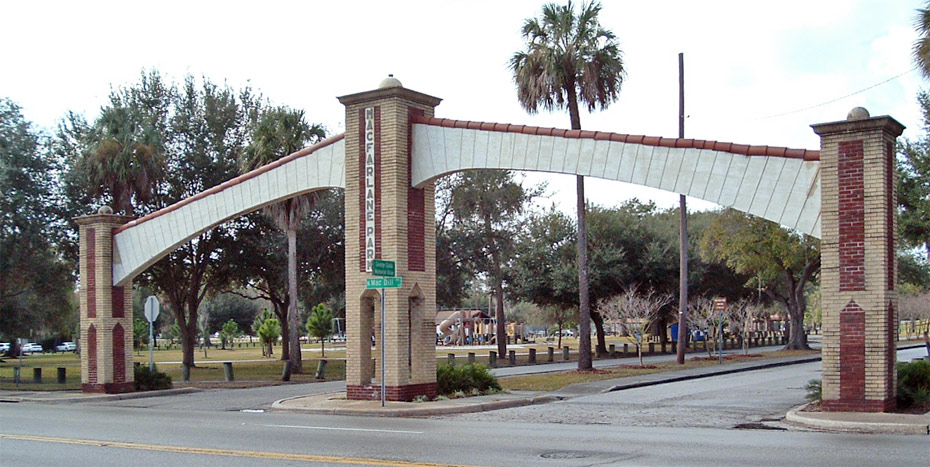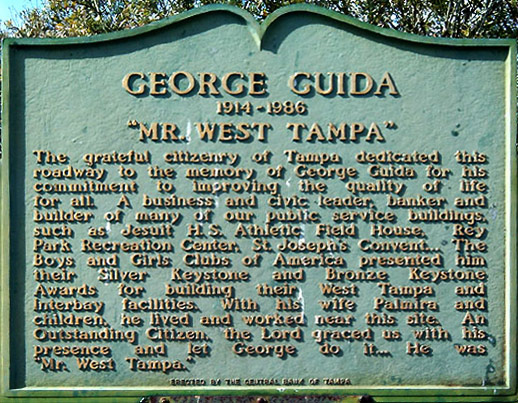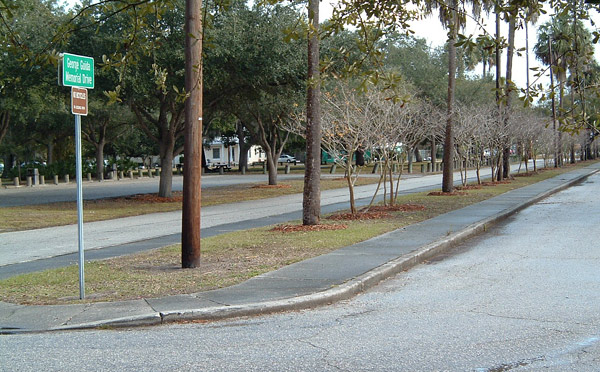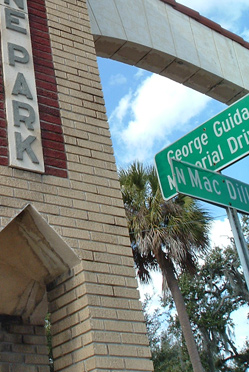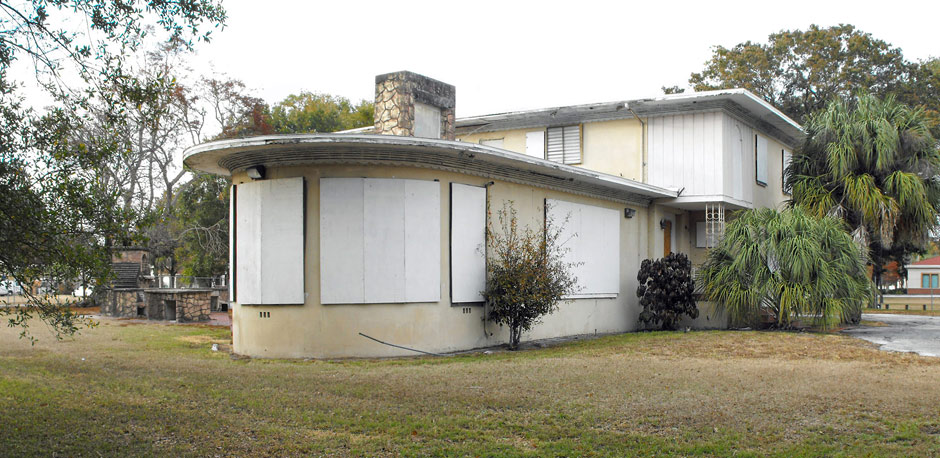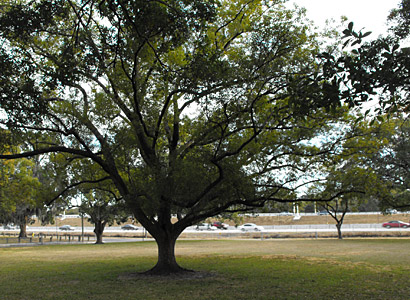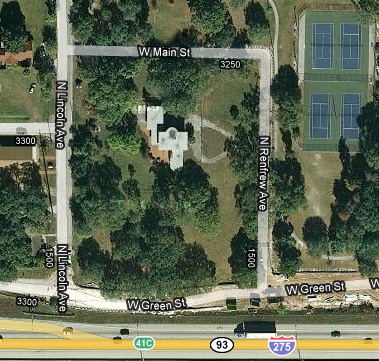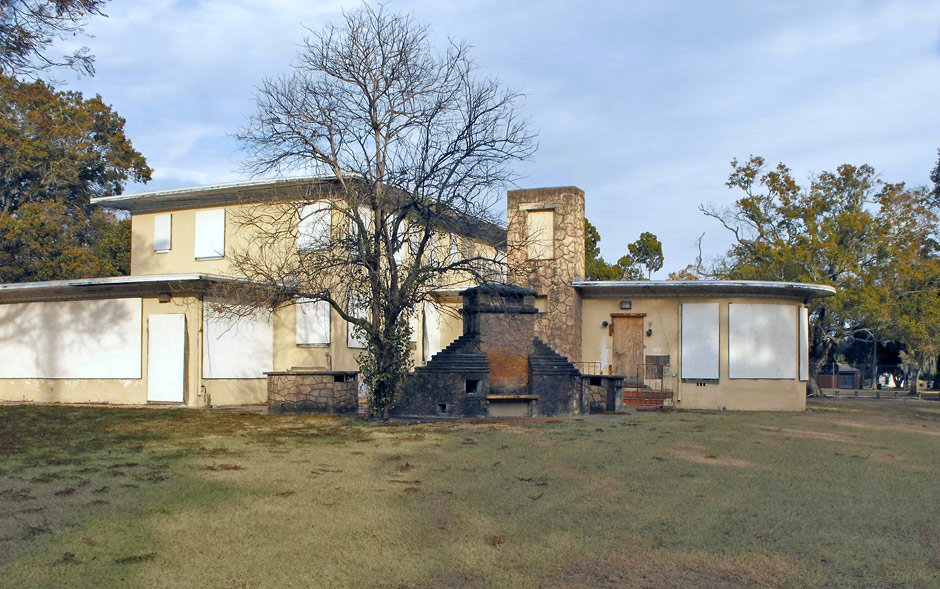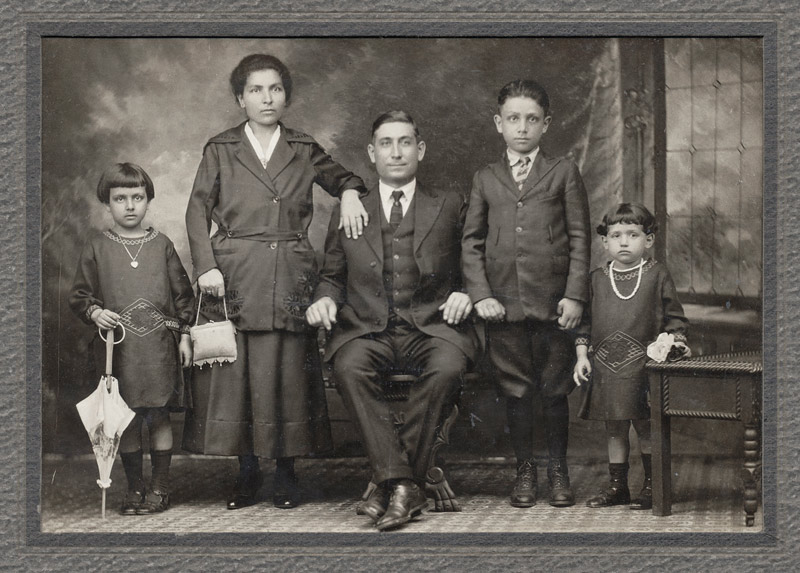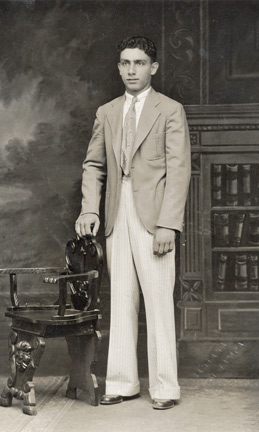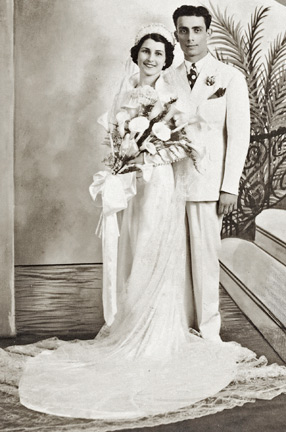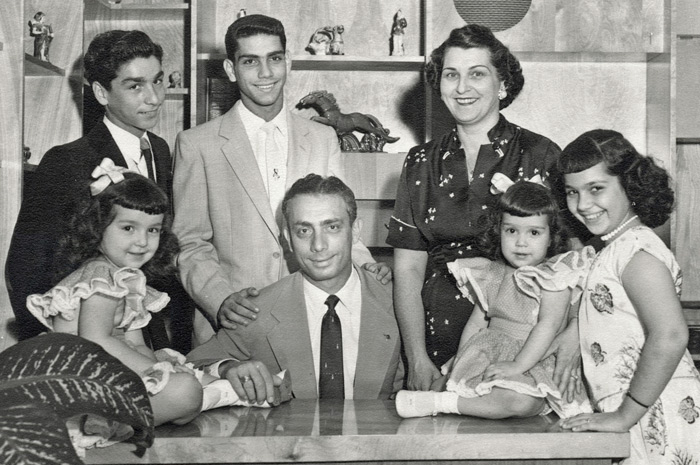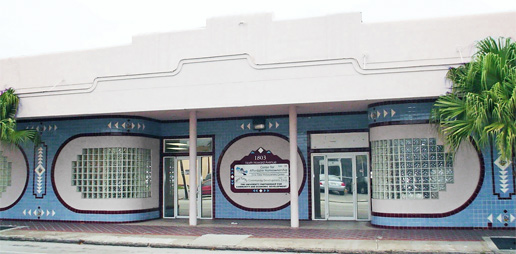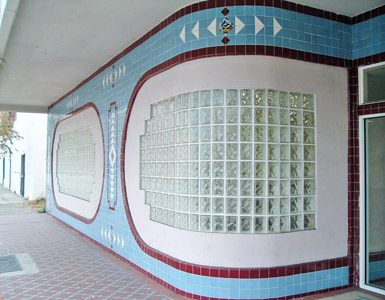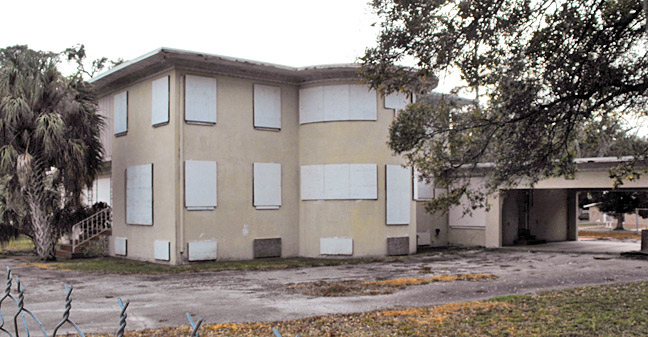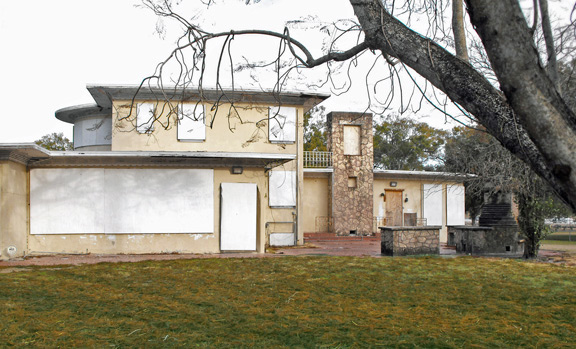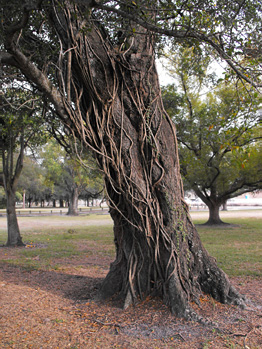
|
GEORGE GUIDA and the GUIDA HOUSE, West Tampa
|
| The grateful citizenry of
Tampa dedicated this roadway to the memory of George Guida for his
commitment to improving the quality of life for all. A business and
civic leader, banker and builder of many of our public service buildings
such as Jesuit H.S. Athletic Field House, Rey Park Recreation Center, St.
Joseph's Convent, the Boys and Girls Clubs of America presented him their
Silver Keystone and Bronze Keystone Awards for building their West Tampa
and Interbay facilities. With his wife Palmira and children, he
lived and worked near this site. An Outstanding Citizen, the Lord
graced us with his presence and let George do it... He was Mr. West
Tampa.
|
|
| Hon. E. J. Salcines remarks at 7:25
of video: Every one of you that is here had your own individual experiences with George or with Palmira or with the Guida family. Every single one of you has some lasting memory of this giant of a man. But most especially, all of us have been blessed because where ever we're at in this community, there is some permanent structure, that George Guida, through his efforts, either collected the money, donated the supplies, the equipment or was there laboring to build that particular building or edifice or facility. George Guida, in chatting with the Perrone family many years ago, when asked by a young, little Perrone girl, "George, why do you build these things? Why are you so interested in building and construction?" He looked at her and he said, "Because when you die, you die. But when you have built and you leave things behind that you have built, you continue to live, even though you died." So where ever you go in this community, George Guida is alive. Because through his buildings, through his dedication, through his involvement and commitment, as the plaque says, "to make the quality of life in this community, better and better. So George Guida has left his mark, and what we're doing today is just recognizing what he has meant to this community. And to take something from what he gave to all of us, we should all be inspired to also leave our mark. As Judge Kavoulkis and I were commenting a while ago before the program got started, very few people have given so much to their community. He was an individual that never sought recognition, but he was always at the forefront, leading to build, to make something, to improve this community. So it's very fitting--I wish that the rain would just sort of slacken up so that we could unveil the marker. However, I think that at this time, before we go through that ceremony, we should call the Guida family; Frank, Bebe, Lorraine, Gerry, and Gida, to please come forward. I know that all of us here, join me in applauding you, on a day like today that commemorates the one year anniversary of his passing. (After applause follows the plaque unveiling.) |
|
|
The Guida house property is located at 1516 N. Renfrew Ave. and occupies a whole square block. It is bordered by Lincoln Avenue on the west, Renfrew Avenue and the Macfarlane Park tennis courts on the east, Main St. on the north, and Green St. on the south with I-275 alongside.
The house has an outdoor brick barbecue, a fireplace in a sunken living room, tile work throughout, a basement, a large kitchen and a heart-shaped front driveway. The curved features of the home are similar in style to his former carpet and tile business location in West Tampa. The two-story art deco home was built in
1951. It was purchased by the city in 1984 to tear it down and create
more green space in Macfarlane Park. But residents raised awareness of the
home's significance and now it is protected as a local historical
landmark, designated as such in 2004. Since it was bought with funds from
the city's parks department budget, the house must remain a part of the
parks department. |
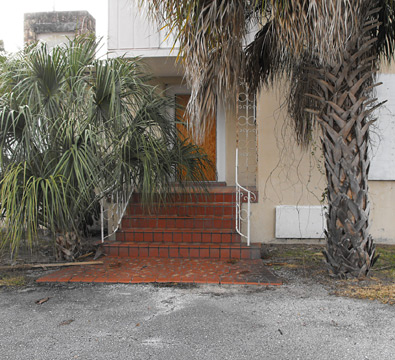 |
The front door faces Renfrew Avenue,
to the east. |
|
This intriguing but beleaguered example of
Mid-Century Modern architecture was the optimistic expression of “Mr. West
Tampa,” George Guida, at the height of his life. Guida’s role as a
contractor and owner of a home furnishings and decorating business gave
him access to the early-1950s design trends du jour — curved facade,
ribbon windows, snappy tiles — and his home, built adjacent to Macfarlane
Park, showed them off. The founder of the Central Bank of Tampa, Guida
built Jesuit High School, Rey Park and a number of other civic buildings,
he made his home a gathering spot for the movers and shakers of West Tampa
as well as a showplace for modern design.
|
In 1984,** after the interstate split West Tampa in
two, the yellow brick structure was acquired by the City of Tampa, which
intended to add to the park area by demolishing the house. Fortunately, a
group formed to protect the building and it was designated a local
landmark in 2004.
Tampa Preservation, Inc. came to the rescue with funding to “mothball” the residence until a user came forward. TPI President Becky Clarke explained, “Like the people of West Tampa, the Guida House is special, and its architecture and history deserve protection.” Everyone agrees that the best reuse for this property would be as an event space for weddings and other special occasions. |
The City of Tampa issued a request for proposals
(RFP) in 2009, which was not a great time for real estate deals. Nothing
happened. Jason Busto, longtime advocate for West Tampa, observed, “People
spent time, money and hope to protect the Guida House and we turned it
over to the City in good faith.” The Mayor’s Office promises to issue
another RFP, but doesn't give a timetable. Okay, Mayor Buckhorn. Let’s move on putting this building out there to get fixed up and earn its keep!
|
||||||||||||
| **The year is a reference to the acquisition of the house by the City of Tampa, and not the year the interstate split West Tampa in two. That occurred in the early 1960s. | ||||||||||||||
|
George Guida’s father Francesco, a Sicilian immigrant, operated the F. M. Guida Grocery store at the southeast corner of Howard and Salle until his death in 1965. George left school to work in his father’s grocery store during the Depression, an experience shared by many of West Tampa’s children of the Great Depression era. The Guida family, as with many West Tampa families, engaged in practices that maintained ethnic traditions and values. As they did in Sicily, the family kept chicken, goats and cows in their domestic space, and children became workers in their early years.
When George and Palmira Priede were married in 1938, they took a chance on a floor covering and Venetian blind store in Roberts City, on Fortune Street. With some success, they decided to move into a commercial space in a former post office at Howard and Union Streets. There, the couple and their children occupied the apartment on the second floor. Their new store offered West Tampa a place for home improvement and modernization by adding air conditioners, kitchen appliances, and home decorating tools such as wallpaper and paint to their inventory. Though George was offered land on Dale Mabry and Cypress Street to expand his enterprise, he had a deep commitment to West Tampa. He purchased and remodeled the 10,000 feet of commercial space that had been vacated by the A&P grocery store. Within this new space, George added construction services and materials to his inventory. The patterned tile floors guided shoppers through display areas of the latest in home furnishings, appliances, imported ceramic tile. The store became the place where families’ first televisions and air conditioners were purchased, creating sentimental memories that connect Guida with the comforts of home. Furthermore, Guida’s wise business policies including lay-away and time-payment policies allowed the working-class community access to modern comforts.
As part of George’s marketing plan, he kept televisions on in the evenings to entertain the neighborhood residents who brought chairs and café con leche to watch episodes of I Love Lucy.
At right, George and Palmira Guida with their children, Frank, George Jr. ("Bebe"), Lorraine, Geraldine and Gida. Photo courtesy of Marilyn Favata Messina
|
||||||||||||||
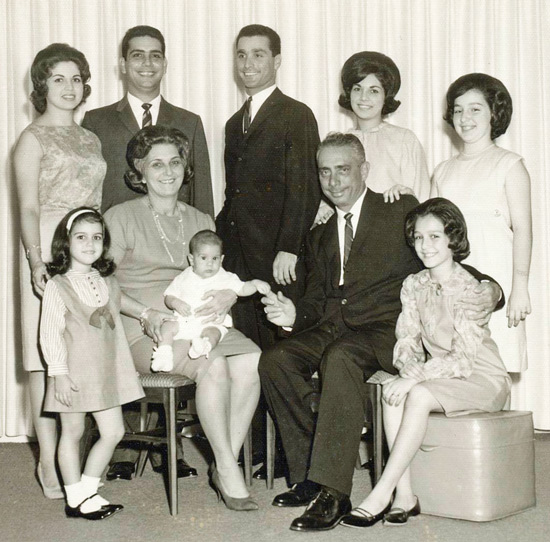
George and Palmira Guida family Palmira and George Guida, seated. Standing at center, George "Bebe" Guida, Jr. Behind George Sr., daughter Lorraine. On the end standing are her sisters, Geraldine and Gida. Photo courtesy of Marilyn Favata Messina |
||||||||||||||
